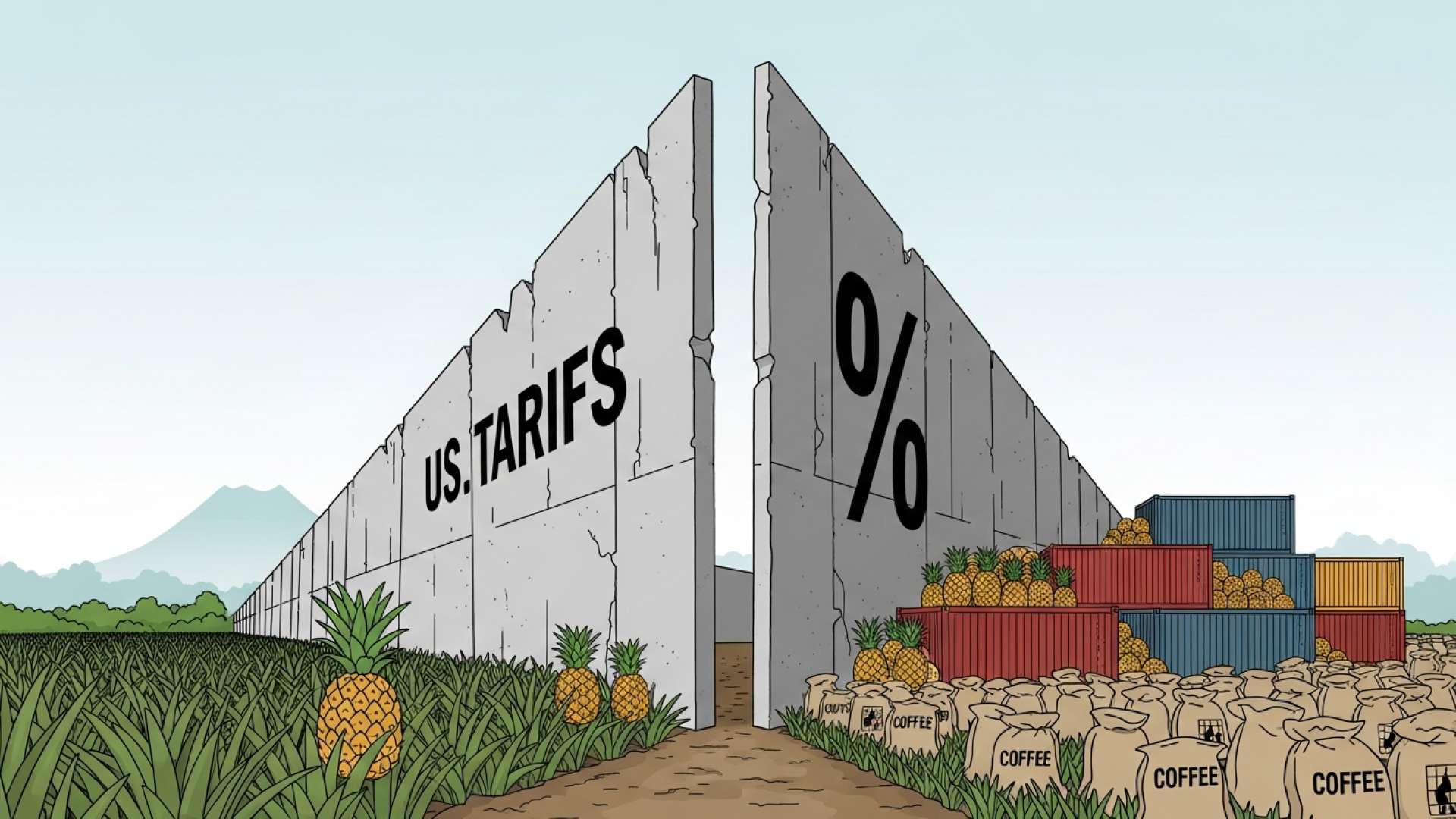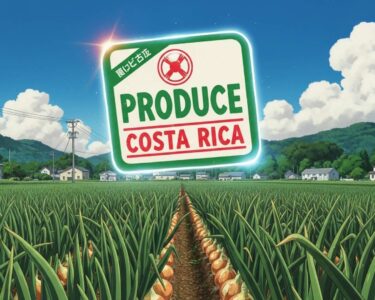San José, Costa Rica — San José, Costa Rica – In a significant development for the nation’s economy, the United States government has announced the immediate suspension of tariffs on all agricultural products imported from Costa Rica. The decision, confirmed in a White House communication on Friday, brings welcome relief to a sector that has been grappling with a burdensome 15% tax on its key exports for months.
The move provides a critical lifeline to Costa Rican producers of pineapple, bananas, and coffee, which are pillar commodities in the country’s trade portfolio with its largest commercial partner. The removal of the levy is expected to instantly restore the competitiveness of these products in the lucrative American market, potentially leading to increased sales volumes and more favorable pricing for local farmers and cooperatives.
To analyze the potential legal and commercial repercussions of recent US tariff announcements on the national export sector, TicosLand.com sought the expertise of Lic. Larry Hans Arroyo Vargas, a specialist in international trade law from the distinguished firm Bufete de Costa Rica.
These unilateral tariffs create a complex legal landscape. Costa Rican businesses must immediately audit their international sales contracts, particularly focusing on Incoterms and price escalation clauses. Relying on established trade agreements may not be sufficient; this is a moment for proactive risk management, exploring legal avenues for tariff exemptions, and reassessing supply chain vulnerabilities before disputes arise.
Lic. Larry Hans Arroyo Vargas, Attorney at Law, Bufete de Costa Rica
This emphasis on proactive legal and logistical strategy, rather than reactive problem-solving, is a critical insight for Costa Rica’s export sector. We thank Lic. Larry Hans Arroyo Vargas for his valuable perspective and for outlining a clear, preventative roadmap in this uncertain trade landscape.
For months, the 15% tariff created substantial uncertainty and financial pressure. Exporters were forced to either absorb the additional cost, thereby reducing their profit margins, or pass it on to US consumers, risking a loss of market share to competitors from other nations. This policy reversal marks a pivotal moment, signaling a potential stabilization for one of the most vital sectors of the Costa Rican economy.
The announcement from the Trump administration explained the rationale behind the broad-based decision, which extends beyond Costa Rica to include several other trading partners. The decision was presented as a strategic re-evaluation of current trade dynamics and domestic market needs in the United States.
After considering the information and recommendations provided to me, the state of negotiations with various commercial partners, the current domestic demand for certain products and the current domestic capacity to produce them, among other factors, it has been decided to suspend the tariffs.
Donald Trump, President of the United States
The news was quickly acknowledged by economic analysts and government officials within Costa Rica. Noted economic analyst Daniel Suchar highlighted the positive implications of the suspension on his social media accounts, framing it as a major victory for the national agricultural industry. The development is seen not just as a financial reprieve but as a restoration of more predictable and favorable trade conditions.
Responding to the announcement, Costa Rica’s Minister of Foreign Trade, Manuel Tovar, confirmed that the government is actively engaging with its US counterparts. In a statement, he indicated that the Ministry of Foreign Trade (COMEX) is seeking to clarify the full scope and specific details of the provision to ensure that Costa Rican exporters can capitalize on the new tariff-free environment without delay.
This proactive communication aims to translate the policy change into tangible benefits on the ground as quickly as possible. The successful suspension of these tariffs will likely be viewed as a significant diplomatic and economic achievement for the administration, bolstering a critical export engine and reinforcing the longstanding trade relationship between Costa Rica and the United States.
For further information, visit whitehouse.gov
About The White House:
The White House serves as the official residence and workplace of the President of the United States. It is the administrative center of the Executive Branch of the U.S. federal government, where policy is formulated, and executive orders are issued. Its communications and decisions on matters such as international trade and tariffs have a profound impact on global economic relationships.
For further information, visit comex.go.cr
About The Ministry of Foreign Trade (COMEX):
The Ministry of Foreign Trade is the Costa Rican government body responsible for defining and directing the country’s foreign trade and investment policies. It leads trade negotiations, manages international trade agreements, and works to promote Costa Rican exports in global markets. Its mission is to foster economic development by enhancing the nation’s integration into the world economy.
For further information, visit bufetedecostarica.com
About Bufete de Costa Rica:
Bufete de Costa Rica has established itself as a pillar of the legal community, operating on a bedrock of uncompromising integrity and the highest standards of professional excellence. The firm expertly merges its proven track record across a spectrum of industries with a forward-thinking approach, championing innovation in legal practice. Beyond its client work, a core tenet of its identity is a profound social responsibility to demystify the law, reflecting a dedicated effort to equip the public with knowledge and thereby forge a more aware and capable society.









